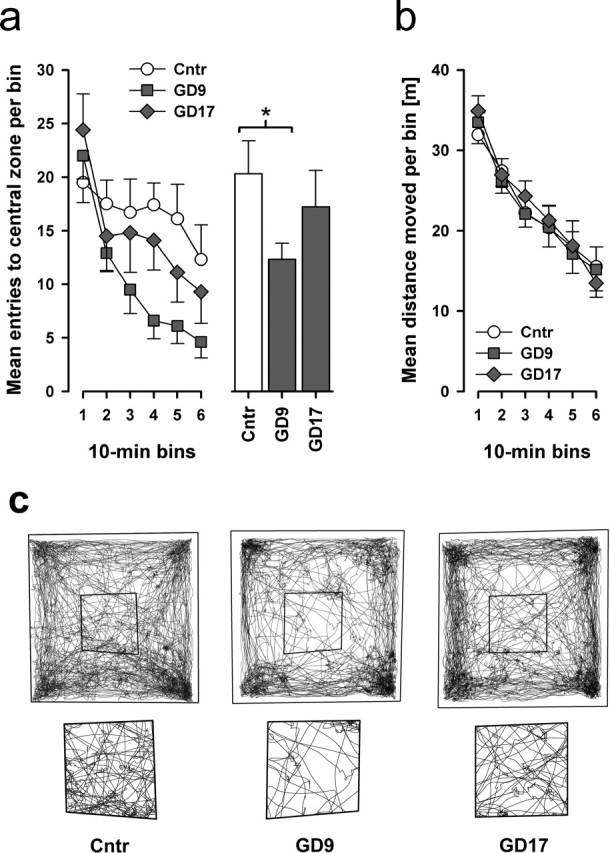Figure 1.

Middle but not late prenatal immune challenge suppresses explorative behavior in adulthood. a, Adult mice born to PolyI:C-exposed mothers on GD9 showed a significant deficit in exploratory behavior compared with control offspring, as evident by the reduction in the frequency to enter the central area in the open field. This effect was not observed in animals born to PolyI:C-treated mothers on GD17. ∗p < 0.05, statistical significance based on Fisher's LSD post hoc comparison. b, No group difference in basal locomotor activity was revealed, therefore the suppression of spatial exploration in GD9-PolyI:C offspring cannot be attributed to any changes in general locomotor activity. c, The three panels illustrate the representative pattern of spatial exploration of the three groups in the entire open field (top row) and in the central area (bottom row). n = 10 (5 males and 5 females) in each treatment group. All values are mean ± SEM. Cntr, Control.
